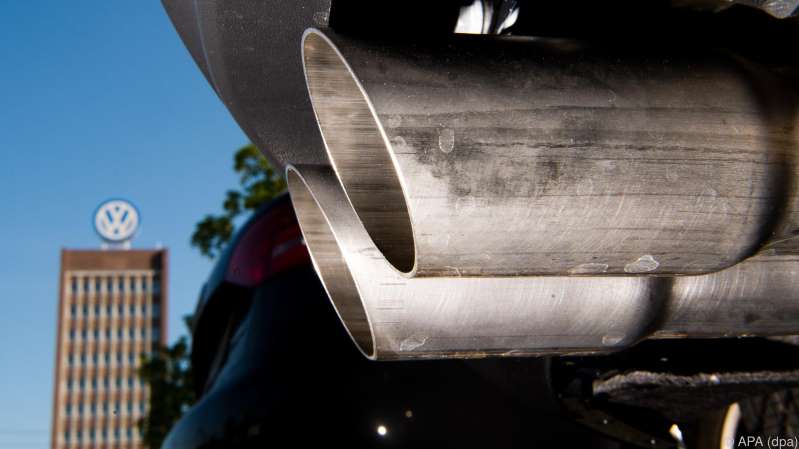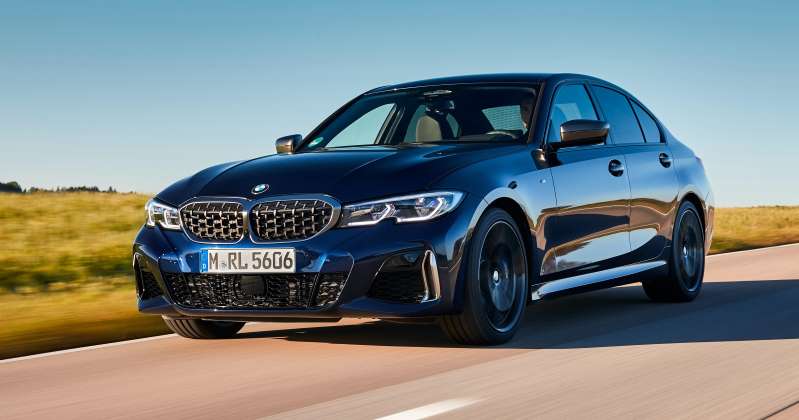The average CO2 consumption of VW engines is 99 grams per kilometer driven. Competitor BMW, however, remains below the limit.

Thanks to the electric offensive and legal tricks, Volkswagen only just missed the EU's climate protection targets. According to preliminary figures, the average value of CO2 emissions for all of the Group's new vehicles put on the roads in the past year fell by around a fifth to 99.8 grams per kilometer compared to 2019. The group missed the applicable EU limit by half a gram, for which a fine of a little more than 100 million euros was due.
A spokesman put the due fines at “a low three-digit million amount” – a little more than 100 million euros. Provisions were made for this early on, VW announced on Thursday. The profit of the final quarter was not burdened thereby.
Analysts and consultants initially expected much higher payments. For the new vehicle fleets of the German manufacturers, on the basis of the 95 euro fine per car for every gram of CO2 above the limit value, sums in the billions were forecast if they did not switch quickly to electric mobility. Daimler and BMW had already announced that, thanks to increased electrical sales, they had met their CO2 targets.
The reason for achieving Volkswagen’s goals was, in addition to the sharp increase in the number of e-cars sold by VW and Audi, so-called CO2 pooling. Here, car manufacturers who are above their limit can for a fee join forces with competitors who are below. Volkswagen has teamed up with the British brand MG of its Chinese partner SAIC, the Geely Group owned London EV Company (LEVC), the Chinese electric newcomer Aiways Automobile Europe and Next.e.Go, the successor to the Aachen-based electric car manufacturer e. Go together. In addition, the two luxury brands Bentley and Lamborghini were assessed individually, so their high emission values are not included in the balance sheet.
Volkswagen had more than quadrupled sales of electrified vehicles in the EU including Great Britain, Norway and Iceland last year to 315,400 vehicles. The proportion of purely battery-operated vehicles and plug-in hybrids, which have a battery as well as a combustion engine on board, in total deliveries increased to 9.7 (previous year 1.7) percent. With a market share of around 25 percent in Western Europe, the group sees itself as the market leader ahead of the Renault-Nissan Alliance and Tesla.
BMW, however, remains well below the climate target
According to circles, however, BMW stayed noticeably below the Brussels emission limits for climate-damaging carbon dioxide (CO2) last year. The group came to an average of around 99 grams of CO2 emissions per kilometer driven for newly sold cars in 2020, as the financial news agency dpa-AFX learned from corporate circles on Thursday. According to their own calculations, the Munich-based company should have achieved a target value of 104 grams.

A spokesman for the company did not want to comment on the information. BMW managers like CEO Oliver Zipse had often been very self-confident when it came to achieving the goals. The EU Commission has to officially confirm the emissions values of individual manufacturers. In 2020, the share of electrified cars among new vehicles on the market increased significantly, among other things because e-drives are being promoted more strongly with increased purchase premiums due to the corona pandemic.
In the EU, there have been stricter requirements for CO2 emissions since last year. Across the industry, this should – apart from transitional regulations – fall to 95 grams per kilometer driven. Each car manufacturer has its own individual goals to meet, depending on the market position and weight of the cars produced. If the real values deviate significantly from this, there is a risk of penalties: 95 euros are due per vehicle sold and average gram of CO2 too much.

